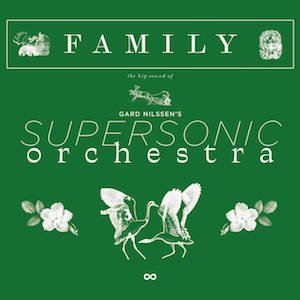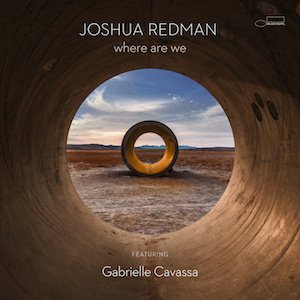Label: Edition Records, 2023
Personnel - Miho Hazama: composition (except #6), conduction; Steve Wilson: alto and soprano sax, flute; Jeremy Powell: tenor sax, clarinet (#1, 3-5); Jason Rigby: tenor sax, clarinet (#2, 6-8); Andrew Gutauskas: baritone sax, bass clarinet; Jonathan Powell: trumpet, flugelhorn; Adam Unsworth: French horn; Tomoko Akaboshi: violin; Ben Russell: violin; Atsuki Yoshida: viola; Meaghan Burke: cello; James Shipp: vibraphone; Billy Test: piano; Sam Anning: bass (except #3); Jake Goldbas: drums.
Guests - Christian McBride: bass (#3); Immanuel Wilkins: alto sax (#8).
The immensely talented Tokyo-born composer and conductor, Miho Hazama, has been carving out a niche among big band enthusiasts with her remarkable project, m_unit. Following the wide acclaim received in 2018 with Dancer in Nowhere, she now presents a follow-up titled Beyond Orbits. The fresh compositions in this album propel musical narratives forward by weaving spellbinding layers of sound. In addition to the motivation related to the ensemble’s 10th anniversary, the inspiration for this album came from exoplanets (planets beyond our solar system).
This new spectacular offering begins with “Abeam”, an immensely rich cut where the entire band plays around constantly shifting meters with dazzling precision. The listener can savor a blend of progressive and classic flavors with Latin and swing jazz affiliations. Each of the chosen soloists - pianist Billy Test, who puts his impeccable language at the service of the music; trumpeter Jonathan Powell, who hits earth and sky with articulated designs; and drummer Jake Goldbas, who extemporizes over a Latin-infused vamp - contribute their unique brilliance.
“A Monk in Ascending and Descending” is a ballad that, in the initial stage, puts trombone and strings in the spotlight. The 5/4 time changes, and saxophonist Jason Rigby blows with intensity over a waltzing cadence. Leavened with the beat bounce of the drummer, the piece gains a hip-hop feel, further enhanced by the nimble, cool mallet work of vibraphonist James Shipp.
The orchestral audacity continues with the three-movement Exoplanet Suite. The first part, Elliptical Orbit, guests the masterful bassist Christian McBride, whose extraordinary odd-metered groove and swinging vibrancy contribute to the epic swagger. The second part, Three Sunlights, takes on a balladic fantasy infused with mystery and magic. And the part three, Planet Nine, driven by a stirring drumbeat, seamlessly integrates post-bop, fusion, and soul jazz elements.
Concluding the journey is “From Life Comes Beauty”, a temperate, graciously configured piece elevated by the soloing adroitness of guest altoist Immanuel Wilkins. But before this, “Can’t Hide Love”, a R&B hit penned by Skip Scarborough and popularized by Carmen McRae and Earth, Wind & Fire, brings out a contagious Brazilian rhythm and a robust baritone solo by Andrew Gutauskas.
Beyond Orbits is nothing short of startling in its dynamics, and confirms Hazama as an adept composer and arranger.
Favorite Tracks:
01 - Abeam ► 03 - Exoplanet Suite: I. Elliptical Orbit ► 05 - Exoplanet Suite: III. Planet Nine








































